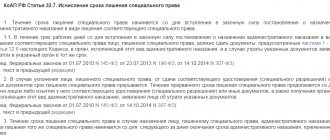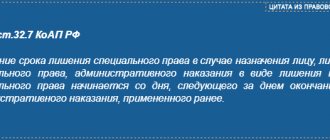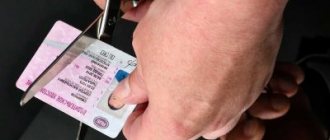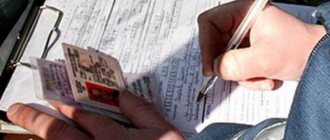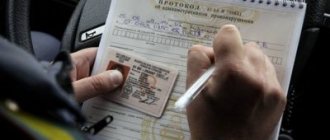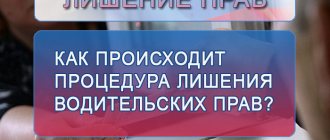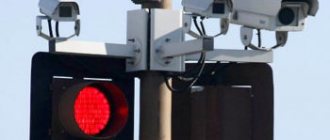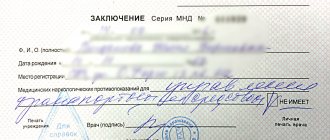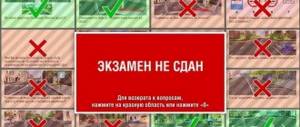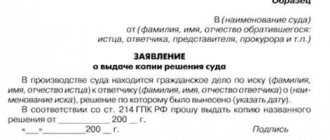When is it impossible to avoid imprisonment for intoxication?
There is only one subtlety when you will no longer be able to avoid deprivation of your license for alcohol - this is missing the deadline for appealing the judge’s decision. If you have already had a trial, and the decision of the first court has already entered into legal force, then it will be almost impossible to appeal it.
The effective date is 10 days from the date of the deprivation decision.
Is it possible to restore the terms and avoid deprivation? Yes, but only if there are serious reasons for missing out (being in an unconscious state, a natural disaster that made it impossible to deliver correspondence and your transportation to court, etc.).
Is it possible to reduce the degree of punishment?
It is quite possible to reduce the period of deprivation of rights for drunk driving, but it will not be less than the established minimum. 1.5 years is the minimum sentence. It can be reduced using a document such as a petition.
Here are step-by-step instructions on how to proceed.
- Write a petition requesting a reduction in the term and indicating the reasons why it can be reduced. In this case, the petition can be submitted personally by the offender, his representative, employer, etc. In addition, you can submit additional documents, for example, a reference from your place of work, etc.
- Present the petition to the court at the hearing of your case and ask the judge to attach it to the case with all additional documents.
- If your request is refused or left unsatisfied, the decision of the magistrate court can be appealed within 10 days to a higher court.
The law establishes that for a primary violation, rights are withdrawn for a period of one and a half to two years. The term is quite long, but it is important to understand that the offense for which this penalty was imposed is extremely dangerous.
In order to try to reduce the term, you must submit an application to the judge who will consider the case.
To the application in which you need to indicate your repentance, you must attach:
- a reference from work that confirms the integrity of the citizen;
- proof that the car is used for work and is the citizen’s main source of income;
- confirmation of the absence of traffic fines.
We suggest you read: Expunge a criminal record if there is administrative proceedings
If these requirements are met, it is likely that the judge will take into account voluntary repentance. Based on whether the offense was committed for the first time, a minimum period of deprivation of rights may be prescribed as punishment.
How to avoid deprivation of rights for alcohol intoxication? In such a situation, it is not recommended to act independently. In situations where your license is revoked for drunkenness, the judge will clearly not be on your side. That is why it is recommended to contact a professional lawyer who will help you avoid deprivation of rights.
The first step is to analyze the evidence. To do this, copies of the following documents are studied:
- protocol on removal from driving a vehicle;
- act of examination of the state of intoxication;
- research results for this act;
- protocol on the commission of an offense of an administrative nature;
- protocol on referral for medical examination;
In addition, the following documents will be useful:
- a report from the road service officer who compiled the protocol;
- testimony of witnesses and/or witnesses.
The protocol on suspension, according to the Code of Administrative Offences, is the first document on the initiation of proceedings on the fact of an administrative violation (i.e. driving while intoxicated). This document contains the reasons why the driver was removed from driving the vehicle, information about the witnesses, the signature of the violator, as well as the traffic police officer himself.
Deprivation of rights for intoxication is possible only if the fact of intoxication is established. The traffic police officer issues a certificate of refusal to undergo inspection directly where he stopped your car. A prerequisite is the presence of 2 witnesses.
To avoid deprivation of rights, the driver needs to remember exactly how the examination took place. Did it happen on the street or in a traffic police car? Did witnesses see how you were tested on a breathalyzer, who exactly acted as witnesses?
At this stage, the lawyer works with witnesses. We need to find out what exactly they saw. They may have simply signed documents or even blank forms that have not yet been filled out. If such details are revealed, deprivation of a driver's license can be avoided if the witnesses agree to testify during the trial.
When studying the act, you need to check:
- paper media (a receipt issued by a breathalyzer);
- digital media.
If the information on them does not match, there is a chance that you will avoid imprisonment for alcohol intoxication. In addition, the presence of signatures, the “agree/disagree” column, etc. are carefully checked. It is necessary to find out which device was used and whether its use is currently prohibited. Is there a certificate for the breathalyzer, when and how was the device calibrated?
The best way to avoid deprivation of rights is not to challenge the results, but to present the facts of violations. It is on this that it is most effective to build a defense if a driver is subject to deprivation of his license for alcohol intoxication.
In what cases can you lose your license for drinking?
Driving while intoxicated is a violation for which punishment is provided only by means of restraint. This means that no inspector can, by law, draw up administrative material if your breath simply smells of alcohol, your gait is unsteady, or you behave inappropriately. This will require an examination, which can be carried out in 2 stages, but more on that below.
Moreover, drinking alcohol before getting behind the wheel is not prohibited at all. You cannot drive a vehicle while intoxicated - with alcohol in your body. And permissible thresholds are nothing more than the permissible error of the values of measuring instruments.
And these two meanings depend on what exactly is being sampled:
- exhaled vapors : they must contain up to 0.16 (not inclusive) milligrams per liter of air,
- blood : up to 0.3 grams per liter of blood.
Measuring alcohol in the blood during examination began quite recently - on August 3, 2021.
If you are caught driving and at least one of the values exceeds the permissible limit, then your driver's license may be taken away.
In order to understand how to avoid penalties for alcohol if you are caught drunk driving, you need to thoroughly understand the procedure for conducting an examination. The presence of procedural errors during its conduct is a serious and significant chance to avoid unlawful deprivation (after all, the examination was carried out illegally).
Repeated driver's license revocation for drunk driving
If you have already been deprived of your driver's license for drunk driving, and you are caught for the same violation again, then you will face either criminal or administrative liability. It all depends on how much time has passed since your license was returned.
According to Part 4.6 of the Code of Administrative Offenses of the Russian Federation, a driver who has been deprived of his driver’s license is considered punished for one year from the date of execution of the punishment, that is, from the day when his license was returned to him.
A person who has been imposed an administrative penalty for committing an administrative offense is considered subject to this punishment from the date the decision on the imposition of an administrative penalty enters into legal force until the expiration of one year from the date of completion of the execution of this decision.
Art. 4.6. Code of Administrative Offenses of the Russian Federation
If, during the first year after the return of the license, the violator drives drunk again, he will be prosecuted, since the violation will be considered repeated. Read more about the dangers of repeated drunk driving in 2021.
If a year has passed since the return of the license, then such a violation is not considered repeated, and the driver who drove the vehicle while intoxicated will be punished again as for committing this offense for the first time under Part 1 of Art. 12.8 of the Code of Administrative Offenses of the Russian Federation - a fine of 30,000 rubles. and deprivation of driver's license for 1.5 - 2 years.
So, for example, if you are charged with this offense for the first time, in the absence of significant and frequent violations of traffic rules, then your rights may be deprived of your rights for a minimum period of 1.5 years. However, if you repeatedly commit the specified offense after a year has passed after the return of your rights, then your rights will not be deprived for the minimum period.
The period of deprivation of a driver's license is suspended if the driver does not surrender his license within 3 days. The period will be taken into account from the day the driver's license is withdrawn. This means that there is no point in avoiding surrendering your license; it only prolongs the time of punishment, because there is no such thing as a statute of limitations for deprivation of your license for drunkenness.
If a person deprived of a special right evades submitting the relevant certificate (special permit) or other documents, the period of deprivation of the special right is interrupted. The course of the interrupted period of deprivation of a special right continues from the day the person surrenders or withdraws from him the corresponding certificate (special permit) or other documents, as well as the receipt by the body executing this type of administrative punishment of the person’s statement about the loss of these documents.
Part 2 Art. 37.2 Code of Administrative Offenses of the Russian Federation
Important!
Deprivation of rights for alcohol intoxication occurs only by court decision. A traffic police inspector, having stopped a driver in a state of intoxication and drawing up an appropriate protocol, does not confiscate his driver’s license, therefore, before the court considers the case and the court’s decision comes into force, you can continue to drive with your license. Read below about how and how long the court process for deprivation of rights for drunkenness takes place.
A driver who drove a vehicle while intoxicated will be held accountable on the basis of Part 3 of Art. 12.8 of the Code of Administrative Offenses of the Russian Federation, if he does not have the right to drive a vehicle for one of the following reasons:
- never passed a license or the license has expired;
- was deprived of his rights as punishment for any other traffic violation, except for driving a vehicle while intoxicated.
In this case, the violator is subject to administrative arrest for 10-15 days or a fine of 30,000 rubles is imposed if the arrest cannot be applied to this person (for example, a pregnant woman, a disabled person of group 1 or 2).
Driving a vehicle by a driver who is intoxicated and does not have the right to drive vehicles or is deprived of the right to drive vehicles, if such actions do not constitute a criminal offense - administrative arrest for a period of ten to fifteen days or the imposition of an administrative fine on persons in in respect of whom, in accordance with this Code, administrative arrest in the amount of thirty thousand rubles cannot be applied.
We invite you to familiarize yourself with: Receipt for the sale of a summer cottage sample. How to draw up a receipt for receipt of funds for a land plot. Receipt for receipt of deposit of funds for a house with a plot of land
Article 12.8 of the Code of Administrative Offenses of the Russian Federation
The same punishment awaits a driver who was driving a vehicle and does not have a license or has been deprived of a license for refusing a medical examination for intoxication in accordance with Part 2 of Art. 12.26 Code of Administrative Offenses of the Russian Federation.
Failure by a driver of a vehicle who does not have the right to drive vehicles or has been deprived of the right to drive vehicles to comply with the legal requirement of an authorized official to undergo a medical examination for intoxication, if such actions (inaction) do not contain a criminal offense, shall entail administrative arrest for a period of from ten to fifteen days or the imposition of an administrative fine on persons against whom administrative arrest cannot be applied in accordance with this Code in the amount of thirty thousand rubles.
Part 2 Art. 12.26 Code of Administrative Offenses of the Russian Federation
Consideration of the question of how severe the punishment for driving a vehicle while intoxicated was carried out for a long time in the State Duma. The result was the following decision: repeated deprivation of rights is not a severe enough punishment for repeat offenders. Since the beginning of 2015, repeated violations may result in imprisonment.
For drivers who commit a repeated violation, Article 2641 of the Criminal Code of the Russian Federation applies. According to its norms, criminal punishment is provided for the following categories of persons:
- those who committed a repeated violation and drove a vehicle while intoxicated;
- those who refused to undergo a medical examination at the request of traffic police officers;
- convicted of crimes provided for in Article No. 264 (parts 2,4,6) of the Criminal Code of the Russian Federation.
The Criminal Code of the Russian Federation is applied not only in cases where the driver has committed a violation again by driving a vehicle while intoxicated. This also happens in situations where a drunk driver is at fault for a fatal accident. The following responsibilities apply to such drivers:
- if the death of one person occurs as a result of an accident, the driver faces imprisonment for a period of two to seven years and deprivation of rights (maximum term - three years);
- If two or more people died as a result of an accident, the perpetrator will face imprisonment for a term of four to nine years, or forced labor for a term of up to five years. In addition to this, the convicted person is deprived of his rights for drunkenness (maximum term - three years).
Current Russian legislation provides for strict punishment for driving a vehicle while drunk. Such behavior is prohibited by law; more details about this are written in clause 2.1 of Federal Law No. 196-FZ. This document contains all the necessary information by which road safety is regulated.
Most often, a motorist who is caught drunk driving only thinks about how to avoid losing his driver's license. As a rule, the violator will primarily bear administrative responsibility. The list of all possible punishments that a drunk driver who is caught driving may be subjected to is presented in Art. 12.8 of the Code regulating administrative offenses of Russians.
We suggest you read: File for divorce if you have minor children
Of course, this article will not give an exact answer on how to avoid deprivation of your license if you are caught driving drunk. After reading it, a motorist who was personally drunk driving or allowed another drunk driver to drive his car will be able to mentally prepare for a fine, the amount of which can be more than 30 thousand rubles.
However, in addition to a monetary penalty, the “lucky” person will be rewarded with the deprivation of his driver’s license, and he will lose the right to drive any vehicle for almost 2 years. There are often cases when, having once been caught by a traffic police officer while drunk, people repeatedly break the law. In such a situation, the fine almost doubles, amounting to 50 thousand rubles. In addition, the motorist will be able to see his license only after 3 years.
Very often, once caught by a traffic police officer while drunk, a person repeatedly breaks the law
Sometimes a person who is caught driving drunk cannot provide the inspector who stopped him with his license due to the fact that he forgot it, for example, at home. Most often, in such a situation, the person who violated the rules is arrested for 10 or 15 days, after which he will have to compensate for his behavior by paying a fine equal to about 30 thousand rubles.
It is worth noting that the offense that a drunk driver can commit can have varying degrees of severity. If the motorist seriously violates the rules, these aggravating circumstances will be taken into account during the trial, which will result in more severe criminal penalties.
If a car owner is stopped drunk driving, he, as a rule, always worries about whether there is an opportunity to avoid deprivation of his license. It is unlikely that it will be possible to avoid responsibility; every year the attitude towards drunk drivers is becoming tougher. The law provides for a harsh attitude towards such violators.
It is not easy to avoid such a serious punishment as deprivation of rights after drinking alcohol. The most important thing is to actually prove to the inspector that you are not intoxicated. For example, if a motorist sitting behind the wheel has been drinking alcohol for a relatively long time, but the corresponding smell emanates from him, accordingly, the traffic police officer may decide that the car owner is drunk. If such a situation occurs, you will have to act according to the recommendations below.
When stopped by an inspector, the most important thing is to prove to him that you are not intoxicated.
Important note!
- This article provides basic information, but each case is different.
- In 92% of all situations there are important nuances that can affect the outcome of the entire case.
- An experienced lawyer will study all the materials of the case and indicate in which direction to move.
Therefore, our website employs on-duty legal consultants who delve into each case and are aimed at solving it.
Ask a Question
or consult toll-free (Moscow), (St. Petersburg), 8 (all of Russia).
How should a test for intoxication be conducted?
Its procedure is quite complicated for the inspector, and in more than half of all cases, traffic police officers make mistakes that can and should be caught on in order to avoid deprivation of rights for driving while intoxicated.
This procedure is regulated by Order No. 664 and its Administrative Regulations, as well as Order of the Ministry of Health No. 933N.
- If a driver is suspected of being intoxicated after stopping while driving, the inspector is obliged to find out the presence of at least one of the signs of this: the smell of alcohol on the breath,
- instability of posture,
- speech disorder,
- a sharp change in the color of the skin of the face,
- behavior that is inappropriate to the situation.
- the driver disagrees with the breathalyzer results,
And it is the violation of this particular order by the inspector that can help avoid deprivation of your license for driving while intoxicated, since it is the errors that do not allow you to reliably determine and establish whether the driver is intoxicated that directly affect your salvation, because any doubts about the guilt of the person are interpreted in favor of this person (presumption of innocence in the Code of Administrative Offenses).
How is alcohol intoxication determined?
Few people know that an employee of the State Traffic Inspectorate must initially determine the driver’s condition visually, taking into account several parameters presented in clause 227.1 of the Administrative Regulations. According to this paragraph:
- The first step is to determine whether the driver smells of alcohol.
- The stability of the posture is being checked.
- Speech disorders are checked.
- A change in the color of the skin on the face may also indicate that you have drunk alcohol, so if your face is very red, this may be a reaction to alcohol.
- Behavior that is inappropriate for the environment can also be a sign of intoxication.
Any of the above criteria would trigger an officer to test the driver with a breathalyzer. However, before the survey, the inspector must:
Remove the driver from driving and record this in the protocol.- Find two witnesses who will observe the entire process.
- Make sure the device is working properly.
- Explain how to use the device to the driver.
We invite you to familiarize yourself with: Payments for compulsory state insurance
The inspector must conduct a breathalyzer examination in compliance with all the conditions of the procedure, and record the results in the protocol.
Reference! If the driver refuses the check, he will be sent to a medical facility, where he will no longer be able to refuse, otherwise he will also be deprived of his license.
After receiving negative results, the driver will be released, but if the results are higher than the norm, the driver will face deprivation.
For the first time, you can lose your right to drive for a period of 18 to 24 months on the basis of parts 1 and 2 of regulation 12.8. Code of Administrative Offences.
The following may be subject to such punishment:
- Drivers who got behind the wheel while drunk for the first time.
- Drivers who committed this offense after the expiration of the administrative punishment for the previous deprivation, that is, the deprivation of rights is not considered repeated.
- Drivers who do not have a criminal conviction for driving while intoxicated, that is, were not charged under Art.
264 of the Criminal Code of the Russian Federation. A driver who has been charged under the specified regulatory provision, regardless of the statute of limitations, for drunk driving will be deprived of the right to drive on the basis of Art. 264.1. Criminal Code of the Russian Federation.
But it is important to understand that deprivation of rights does not occur on the road, but in court. Often inspectors do not fully comply with the inspection procedure, which the driver must write down in the protocol.
But given the social danger of this offense, it is impossible to avoid deprivation of rights. You shouldn’t think that “they’ll forgive you the first time.”
The law provides for deprivation of rights for a period of one and a half to two years for the first such violation of the rules.
| fine deprivation of rights | 200-300 thousand rubles for up to 3 years |
| compulsory work deprivation | 200-300 thousand rubles up to 3 years |
| forced labor deprivation | up to 2 years up to 3 years |
| deprivation of liberty deprivation of rights | up to 2 years up to 3 years |
Such a severe punishment emphasizes the risk of relapse of this offense.
What can you do before the court to protect yourself from deprivation?
If you have been caught driving while drunk and are now awaiting trial (only judges can issue deprivation orders, and the inspector can only draw up a report on the road, which is submitted to the court), then you should pull yourself together and prepare written petitions . They are written in free style in the name of the judge who is presiding over the case and are essentially similar to a statement of request (the judge can reject requests, but only for motivated reasons).
So, if the main task in order to avoid deprivation of rights for alcohol is to look for serious errors during the examination, then your task now is to ensure that the court requests the maximum possible amount of information about your case for this procedure and invites the maximum number its participants.
What should the court ask for if a medical examination took place?
- request documents confirming the existence of an order from the chief physician for admission to the employee’s blood sampling procedure, if blood was drawn (blood can only be taken by a person authorized by the chief physician),
- documents on storage of seals on urine or blood samples,
- a list of workers who took samples for storage, and another petition to invite these workers to court as witnesses,
- certificates and approvals of the doctor who has already specifically carried out the examination,
- a copy of the medical institution's license.
What should I apply for if I was only tested for alcohol on the road?
- to summon the traffic police officer(s) who carried out the examination to court,
- about calling witnesses, if they participated, or attaching a video recording (yours, if you filmed the examination, and this must be done),
- on the inclusion of your witnesses in the case materials, who will indicate what you did before and whose testimony will prove that you did not drink alcohol before driving,
- on the inclusion of documents for the breathalyzer device into the case materials: verification certificate, instructions.
How it happens
- After the driver is stopped and asked to undergo an alcohol test, it is necessary to make sure that this procedure is carried out in accordance with all the rules. It is important that the procedure is carried out with witnesses.
- Today, exhaled air when analyzed on a breathalyzer may contain 0.16 ppm. But you need to understand that these figures are given only for the error of the device, and not so that the driver has the right to drink a little and then get behind the wheel.
- The driver has the right to refuse examination with a breathalyzer, but in this case the driver is sent for a medical examination, which cannot be refused. If you refuse a breathalyzer test and agree to a medical examination, the inspector is obliged to take the driver to the place where the test will be performed.
- Medical examinations are carried out in a hospital or at special mobile stations. The main difference between it and a roadside check will be the fact that the tests will be carried out by a doctor. Initial testing is carried out using a breathalyzer, and if the result is positive, the driver provides blood and urine. The acceptable blood alcohol level is about 35 ppm.
- The driver may refuse to undergo a medical examination at any time, and this will be indicated in the report. But refusal to undergo a medical examination, according to the law, is equivalent to the driver admitting the fact that he is drunk.
It is extremely unwise to do this, because by doing so the driver immediately loses the court case:
- The medical examination, as well as the refusal from it, is formalized in a separate act, which is subsequently submitted to the court along with the protocol.
- According to the law, such cases are heard in the magistrate's court.
- The case is filed in court at the place where the offense was committed, but the driver can file a motion and ask to transfer the case to the court at his place of residence.
- The driver is informed about the date and time of the consideration of the case by a summons, which is sent to the specified address.
- In most cases, if the case has already gone to court, it will be decided not in favor of the driver. There are basic documents confirming his guilt and it is not so easy to refute them.
- Previously, traffic police inspectors had the right to confiscate a driver’s license at the scene of an offense. It is now the diocese of the court. Moreover, the VA is withdrawn only after the decision on this comes into legal force.
- In accordance with Art. 32.5 of the Code of Administrative Offenses of the Russian Federation, a court decision on deprivation is executed by employees of internal affairs bodies.
- According to Art. 32.6 of the Code of Administrative Offenses of the Russian Federation, the driver’s license is confiscated and stored for the entire time specified in the decision in a special storage facility.
- There is a very important point regarding the passage of time. According to the law, it begins to flow from the moment the decision comes into force. It is assumed that by not using the right to appeal, the driver admitted that he was guilty and is obliged to hand over the driving license. But many drivers forget about this, believing that the time for punishment is already running out, and they themselves drive a car with a license that must be surrendered.
- But the law provided for this and the period is interrupted accordingly. from paragraph 2 of Art. 32.7 Code of Administrative Offenses of the Russian Federation. Thus, the period will begin to count from the moment the driver passes the driving license. It is also important to take into account that, in accordance with the court decision, this driver’s license is listed in the traffic police database. Thus, the driver faces the following:
- removal from management rights;
- The car is heading to the impound lot.
- After the expiration of the period for which the driver was left without a license, it is necessary to appear at the State Traffic Safety Inspectorate and get your license back.
What are the stages of intoxication discussed in the article:
We suggest you read: How to discharge a person from a municipal apartment if he does not live in it
intoxication
.
Read about repeated driving while intoxicated here.
How to avoid deprivation of your license for drunkenness?
This can be done for various violation reasons. Let's give them the maximum number, and your task in court is to find out their presence and, most importantly, to convince the judge that these errors and violations cast doubt on the correctness of the examination and, as a result, cannot reliably establish the fact of intoxication, and any doubts your guilt is interpreted in your favor (Article 1.5 of the Administrative Code).
So, below we list all the violations that, according to judicial practice in 2021, should entail avoiding punishment in the form of deprivation of rights for drunkenness if you are caught driving drunk. We will also provide references to rulings and decisions of courts, in particular, the Supreme Court, the results of which are required to be guided by lower authorities (but, of course, not unquestioningly make identical decisions).
If the roadside inspection procedure itself is violated
- The required interval of 15-20 minutes between samples of exhaled air was not observed (compared to the time in paper “receipts” of the device) - Resolution of the Supreme Court of the Russian Federation No. 11-AD15-34 and No. 46-AD16-24.
- If attesting witnesses have different signatures in protocols or other documents - RF Armed Forces No. 5-AD16-213.
- If the disk with a video recording of the situation on the road turned out to be unreadable in court or the traffic police inspector lost it.
- If the protocol does not contain the time of examination, or the protocol of suspension and the protocol of referral or report indicate different times.
- If the act indicates the alcohol concentration not in mg/l, but in other values - for example, in ppm (it is not always possible to avoid deprivation on this basis) - RF Armed Forces No. 82-AD17-1.
- The examination procedure is incorrect. If a protocol of referral for a medical examination is drawn up first, and then an examination report is drawn up, then the order is violated.
Breathalyzer violations on the road
- Humidity, temperature and other weather conditions were not acceptable for operating the device.
- There are no printed results from the device at all or they are lost.
- There is no driver data, date and time, date of calibration and verification, if according to the technical characteristics of the device they should be printed, or if they were entered by the traffic police officer himself.
- If the device data is not included in the inspection report.
- “Falsification” of a certificate is expressed in the form of slipping in a certificate other than the required one - about the conformity of the type of measuring device.
- If the breathalyzer certificate does not comply with GOST No. 50444-92 (this GOST is not specified in the certificate).
- If the device is not registered as a medical device.
- If the breathalyzer is not sealed (very often on this basis it is possible to avoid deprivation of rights for alcohol) - it does not have the corresponding verifier’s mark.
- If the verification was carried out by an organization not accredited for this purpose.
- If the verification is simply overdue (a very good reason to cancel the deprivation) - RF Armed Forces No. 18-AD11-8.
- There is no signature on the verification certificate.
Violations during medical examination
- If the inspector sent for a medical examination without carrying out the procedure on the road.
- The laboratory does not have a license or if such a license has expired.
- If the medical examination was carried out in a mobile laboratory, but the requirements of Order No. 933N were not met.
- The doctor does not have a certificate of completion of training.
- If the medical institution did not sample the driver’s exhalation, but immediately took urine or blood to test for alcohol and drugs.
- The examination report was not signed by the doctor.
- In the conclusion of the examination, the act does not contain the direct words “The state of intoxication has been established.”
- If, after taking air, urine or blood was not taken - judicial practice of the RF Armed Forces No. 82-AD17-1.
It is important to understand that all of the above violations will not lead to a 100% cancellation of the deprivation of rights as such if you are caught drunk. This depends on the individual judge and the totality of such violations - the more there are, the higher the chance of avoiding deprivation. However, it should be understood that judges make decisions based on personal conviction based on all the facts being examined. Plus, they are not always without sin. Therefore, sometimes you will have to appeal the decision of the magistrate in the district higher court.
Challenging the decision
https://www.youtube.com/watch?v=ytpolicyandsafetyru
A justified challenge to a decision takes place in several stages:
- Submitting an application to the traffic police. It indicates violations on the part of the inspector when filling out documents or conducting an inspection.
- Filing an application to the court (if the traffic police rejected the petition) - district, then regional.
- Choice of defense tactics: demanding an independent examination (no later than a couple of hours after the state examination), referring to the illegality of the actions of the traffic police officers, or proving that the car was on the side of the road.
The violator has 10 days from the date of receipt of the corresponding letter to file an appeal to a higher court. Valid reasons for missing this deadline may be the reason for its extension.
The document contains a request to cancel the decision of the court of first instance on the following grounds:
- the person against whom the proceedings were conducted was not properly informed of the time, date and place of the court hearing;
- the person was informed about the meeting, but missed it for a valid reason;
- the presence of serious evidence of procedural violations committed during the proceedings;
- the emergence of new arguments in one's defense.
We invite you to read: Punishment for driving without a license after deprivation
The complaint is addressed to a superior judge, but is filed in the court of first instance. In case of refusal to cancel the decision, there is also a court of cassation. If the decision of the first court is overturned, you can go to the traffic police with a supporting document and return the certificate.
Judicial practice in cases challenging the deprivation of the right to drive transport suggests that good reasons and a competent approach do not always solve the problem. It is worth giving examples.
Example #1
Citizen F., a native of Perm, using the services of a lawyer, repeatedly filed petitions to postpone the trial. As a result, the three-month limitation period for making a decision on administrative proceedings has expired. The result is that by the decision of the magistrate in case No. 5-105-13 in Perm, the proceedings for the offense were terminated due to the expiration of the permissible period for bringing to justice.
Example No. 2
Citizen Z. was stopped by a traffic police officer of the Perm Territory; his face showed signs of intoxication - smell, unusual complexion. He did not refuse to undergo the initial examination. The breathalyzer showed the presence of more than 0.9 mg of alcohol in 1 liter of exhaled air. Citizen Z. did not agree with the results of the initial examination, but was not sent for a medical examination. Despite this fact, the magistrate court made a decision to deprive citizen Z. of the right to drive a vehicle. The higher court overturned the decision of the magistrate court for failure to prove the guilt of citizen Z. (Case No. 12-30/2014).
Driving while intoxicated is not just a serious offence. Reduced reaction speed and inappropriate behavior of the driver often lead to the death of an innocent person. Despite the fact that practice shows the reality of returning an ID when contacting an experienced lawyer, you should not expose yourself and others to such a risk.
If you have any questions, you can ask them free of charge to the company’s lawyers in the form provided below. An answer from a competent specialist will help you make the right decision.
Will a lawyer help me?
Definitely yes. Just not necessarily a lawyer, it can be a person with the usual status of a defense attorney at your request for his involvement, who will help you regain your rights.
It is important to understand that a lawyer with experience in such cases is much more likely to “pull out” your case and help you avoid deprivation of your license for alcohol intoxication than you yourself. But it is equally important to choose the right car lawyer - with a large “piggy bank” of won cases. You can find out about his experience on the website of the legal proceedings database by simply entering the lawyer’s name in the search field, as in the screenshot below.
We also have a separate article on avoiding criminal prosecution for intoxication.
Introduction
It's no secret that even an experienced driver can break traffic rules. It is especially difficult for car owners on holidays, when the whole family can afford to relax with alcohol, and a person who has some kind of trip ahead has to celebrate the holiday only with a glass of juice. Often, after drinking one or two glasses of wine, the car owner gets behind the wheel to drive just a couple of blocks, and as luck would have it, he meets a traffic police officer on the road.
It’s good if the alcohol you sipped was not enough to reach the minimum possible dose of intoxication, but what if this is not the case? What should a motorist who is caught driving drunk do, how can he avoid deprivation of his license in this case? This question especially often plagues people who are accustomed to periodically drinking alcohol and driving without a twinge of conscience in order to solve some “important” matters.
Often after drinking one or two glasses of wine, the driver gets behind the wheel to drive just a couple of blocks and meets a traffic police officer
